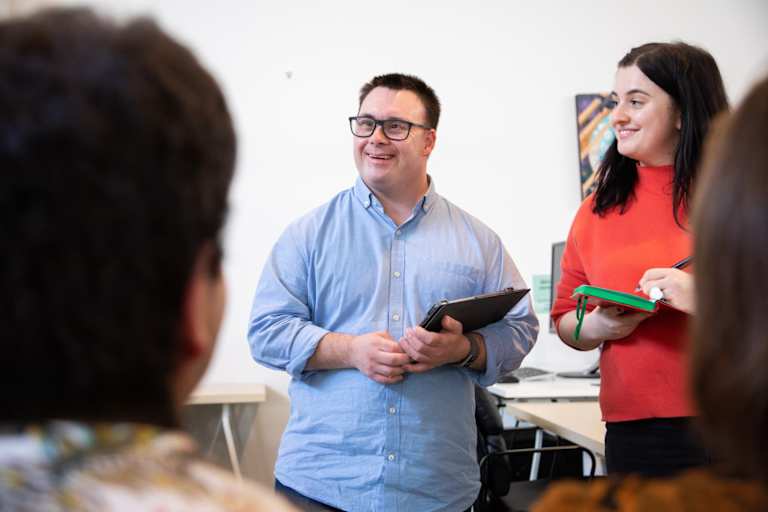How to Become an Licensed Counselor in Wisconsin
- Licensure Requirements
- How Long Does it Take?
- Out-of-State Licensing
- Licensing Renewal
- Salary Expectations
- Professional Organizations
- FAQ
Like other states, Wisconsin has very specific licensing standards for mental health professionals. Ensure you get the right education and training with our licensing guide. Research Wisconsin counseling license requirements for mental health counselors, school counselors, and marriage and family therapists.
Wisconsin Counselor Licensure Requirements
Two main bodies issue Wisconsin counseling licenses: the Wisconsin Department of Safety and Professional Services (DSPS), and the Wisconsin Department of Public Instruction (DPI). The DSPS issues licensed professional counselor (LPC) and marriage and family therapist (MFT) credentials, while the DPI licenses school counselors.
Explore the sections below for information on the qualifications you need to qualify for each of these professional pathways.
How Long Does it Take to Become a Counselor in Wisconsin?
Wisconsin counseling license time requirements vary according to the license type you plan to seek. The following estimates account for the minimum qualifying level of education, plus any supervised experience requirements that may apply:
- LPC: 7-8 years
- MFT: 7-8 years
- Tier II school counselor: 6-7 years
You can reduce your experience requirements by about one year if you qualify for your LPC license with a doctoral degree, since you will only need 1,000 supervised experience hours instead of 3,000. However, doing so will likely add about 2-4 years of education to your timeline, depending on your program’s pacing.
Out-of-State Licensing Reciprocity in Wisconsin
You can obtain an LPC or MFT license in Wisconsin by reciprocity if you hold a valid similar license in another U.S. jurisdiction. In either case, the standards required to obtain your initial credential must closely match Wisconsin’s counseling license requirements. A passing score on a Wisconsin jurisprudence exam is also required.
School counselors licensed in other states can apply for a Wisconsin license through the DPI’s out-of-state pathways program. As a primary requirement, you must hold a qualifying degree in school counseling that is formally approved by the state where you obtained your license.
How to Renew a Counseling License in Wisconsin
LPCs and MFTs must renew their licenses by February 28 of each odd-numbered year. Neither license requires any continuing education (CE) for your first renewal. However, each successive renewal requires 30 CE hours, including four hours of professional ethics.
If you hold a tier II school counselor license, you must renew it every three years by reapplying to the DPI. At tier III, you must hold consistent employment as a school counselor and undergo a background check every five years to maintain your status. Maintenance requirements do not apply at tier IV.
Salary Expectations for Counselors in Wisconsin
On average, Wisconsin counselors can expect to earn between $43,000-$71,000 annually. However, counselor salaries in Wisconsin are highly variable. Compared to national averages, some specialists in Wisconsin earn significantly more, while others earn significantly less.
For example, MFT salaries in Wisconsin fall well below national averages, while substance use, behavioral disorder, and mental health counselors earn substantially more. The following table highlights earning trends, based on May 2024 BLS data:
| Occupation | Average Hourly Salary | Average Annual Salary |
|---|---|---|
| Educational, Guidance, and Career Counselors and Advisors | $32.03 | $66,620 |
| Marriage and Family Therapists | $21.03 | $43,740 |
| Rehabilitation Counselors | $22.03 | $45,820 |
| Substance Use, Behavioral Disorder, and Mental Health Counselors | $33.74 | $70,180 |
| Counselors, All Other | $34.18 | $71,090 |
Professional Organizations for Counselors in Wisconsin
- Wisconsin Counseling Association: The WCA is Wisconsin’s state branch of the American Counseling Association. It works to promote professional mental health counseling in Wisconsin, connect counselors through networking and mentorship programs, improve care and service standards, and support members’ professional growth.
- Wisconsin Association for Marriage and Family Therapy: This geographic interest network of the American Association for Marriage and Family Therapy operates advocacy initiatives, networking events and outreach programs, and ongoing training and educational resources. It also helps members of the public identify and connect with qualified local MFTs.
- Wisconsin School Counselor Association: WSCA provides developmental and professional advancement resources to more than 1,400 school counselors in its network. It hosts seasonal and annual events including career summits, learning academies, and statewide conferences. WSCA also advances ACSA Model training programs and trauma-informed care programs for school counselors.
Frequently Asked Questions About Wisconsin Counseling Licensure
Core Wisconsin counseling license requirements include a master’s or doctoral degree, 1,000-3,000 hours of supervised training, and a passing score on the CRCE, NCE, or NCMHCE examination. You can also apply for a training or temporary license as you work toward meeting these qualifications.


